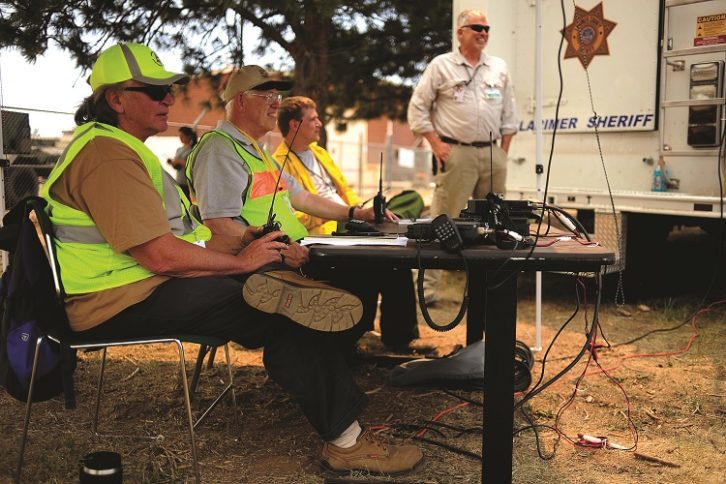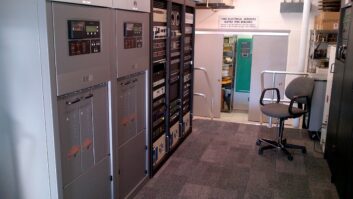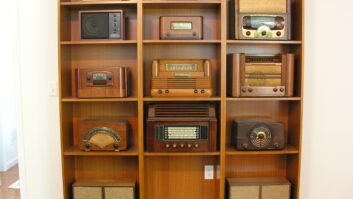Many readers replied to Burt Fisher’s letter about amateur radio in a previous issue. Below is a sampling.
When All Else Fails
I was disheartened to read Burt Fisher’s disparaging comments on amateur radio in the March 16 Opinion section.
As an active member of the ham radio community and president of my local amateur radio club, I know that hams play an important role in serving their communities. In addition, most hams are dedicated to the craft and continuously seek to improve their knowledge, operating skills and ability to provide emergency communications.
As a prime example, I would point to amateur radio’s response to Hurricane Maria, which hit Puerto Rico and destroyed its communication infrastructure.
The American Radio Relay League — the organization that represents hams — asked for volunteers to travel to the island to help get emergency communications up and running. A total of 50 hams were sought, but hundreds volunteered. Within days, amateur radio operators had restored vital communication links, providing an invaluable service in assisting recovery efforts.
In the case of our own club, we have an agreement to provide emergency backup communications for our local sheriff’s department in the event its own radio systems fail. We also provide communications support for numerous community events and first-hand information from the field to the National Weather Service during severe storms.
Fisher wrote that hams no longer advance the state of the art of communications. Perhaps he’s not aware of the many new technologies that amateur radio embraces, including a host of groundbreaking digital modes that provide reliable communications during marginal conditions.
Regarding his concern that operators don’t have generators and backup power sources for use during emergencies, I note that most ham transceivers run on 12 volts and are easily powered by car batteries, even solar arrays. As we like to say: “When all else fails, there’s amateur radio.”
Finally, his letter raised the issue of today’s licensing of operators. As an FCC Volunteer Examiner myself, I can tell you that we “VEs” take our job very seriously and adhere to rigorous rules and regulations when administering licensing exams. While the entry level exam for the Technician license is relatively easy, it also has very limited privileges. It is designed to build interest in amateur radio, with the intent that these operators will seek to upgrade to General and Amateur Extra class licenses, both of which require substantial knowledge of electronics, RF radiation hazards, FCC regulations and more.
No doubt there are hams who fall short of the mark, but I have found the vast majority to be decent, caring people who seek to build upon amateur radio’s great heritage.
– Bryan Jackson, President, East Greenbush (N.Y.) Amateur Radio Association

Necessary and Welcome
Yes there are idiots who give the rest of the amateur community a bad name. Many amateurs are taking steps to take these stations off the air.
The FCC has issued monetary forfeitures, such as the $25,000 fine to W6WBJ in 2016, but seem to be powerless to enforce collection of those fines and have these operators removed from the airwaves, as they did with others in the early 1970s.
Closing most of the monitoring stations such as the one outside of Livermore, Calif., certainly doesn’t help enforcement ability.
As for wearing vests and interfering with emergency workers, that was a cheap shot hardly worthy of print. As president of the Amateur Radio Club of Alameda, Calif., I can attest to the fact that not only do many of our members conduct emergency net operations nearly every evening of the week, they also work with local CERT teams, providing quality communication. Our assistance has been deemed necessary and welcome by officials in Oakland and Alameda.
Every June amateurs conduct a nationwide exercise known as Field Day, when we encourage amateurs to set up emergency communications under all manner of conditions. We use batteries, solar panels, generators and even hand-crank generators to keep the art of emergency prepared. We operate from mountain tops, schools, abandoned building and even emergency communication vans.
Outside of Field Day I have personally conducted dozens of portable operations, from mountaintops, hotel rooms, sailboats and backyards of people’s homes, not to mention the ongoing portable setup I maintain in Concord, Calif., where I perfect the art of portable communication on a daily basis.
I am a (20-wpm) Amateur Extra class licensee. It was amateur radio that largely kept me off the streets and out of trouble with the police in my high school days. As for radiosport contesting, I contend that properly conducted, radiosport competitions constitute emergency preparedness training and have even written numerous WQ6X Contest Blogs to that effect
There is a new breed of radio amateur youth who are not only taking contest activities to the next level, they are developing new technologies to make things operate more of effectively.
For over 100 years, many things we take for granted in the broadcast industry were spearheaded by the amateur radio community, eventually co-opted by commercial interests.
As for the foxes guarding the henhouse, Volunteer Examiners administer the examinations only because the FCC abdicated its responsibility to do so. To the best of my knowledge, testing done by VECs is just as stringent as the FCC-administrated testing ever was.
– Ron Fitch, WQ6X President, Amateur Radio Club of Alameda
Fertile Ground
I read with disdain the inflammatory letter about amateur radio. It contained falsehoods begging to be corrected.
Just because the rest of the amateur radio service is not snapping to and following Burt Fisher’s edicts does not entitle him to distort the truth.
First, he should produce the name and callsign of the “five-year-old” who passed any of the amateur radio exams.
Second, he needs to look up the word “frequently.” Profanity is likely more common on broadcast radio than on the amateur bands. In fairness, both are plagued by pirates.
The vast majority of amateur radio associations work closely with their local emergency management agencies, state and federal, and are welcomed as important elements of any emergency response.
If you were to ask FCC commissioners about their “successful” programs, the volunteer examination program for amateur radio continues to be one of their best.
Finally, amateur radio remains a fertile training ground for much of the engineering talent that is available to broadcasters nationwide.
I’m surprised that Radio World gave voice to such an extreme position.
I do agree, however, that is unfortunate that the FCC discontinued the First Class Radio Telephone operators permit.
– Dolph Santorine, AD0LF
A Cherished Springboard
I’m chief engineer for a cluster of 24 commercial broadcast radio stations in northeast Pennsylvania and reaching into New York state.
I was licensed in amateur radio in 1974 as a Novice when I was barely out of my teens. I went on to achieve the General and the Amateur Extra Class license. I built my first 75-meter band receiver in 1974 from scratch, following a design in the ARRL Handbook. I etched the circuit board and stuffed it with hand-wound toroid coils and other components.
I made my first Morse Code contact with that receiver, worked an amateur station in Winnipeg, Manitoba. From that humble beginning I went on to build other pieces of ham gear.
Amateur radio was a springboard to a lifelong career in telecommunications. I went on to achieve the Second Class Radio Telephone License and then on to the First Class Radio Telephone License. Eventually I earned NARTE certification as an EMC Engineer and ran a NVLAP-accredited and FCC-Listed EMC Test Laboratory. When that laboratory closed nearly 20 years ago I started working in broadcast engineering.
Certainly amateur radio has met one of its stated purposes: to encourage the growth of wireless experimentation and self-training. It is unfortunate that the author of the letter seems to be ignorant of the vast amount of educational material published by the Amateur Radio Relay League and the encouragement it provides in experimentation with and use of spectrum-sparing modes of communication. These used by amateur radio operators around the world.
We recently advertised an employment opportunity for an assistant to the chief engineer. The only qualified applicant, whom we ultimately hired, is a licensed amateur radio operator.
Love for the practice and art of radio should be encouraged in every way possible, including amateur radio, for the health of the broadcasting industry.
– Craig R. Seelig, WA3ZCR







